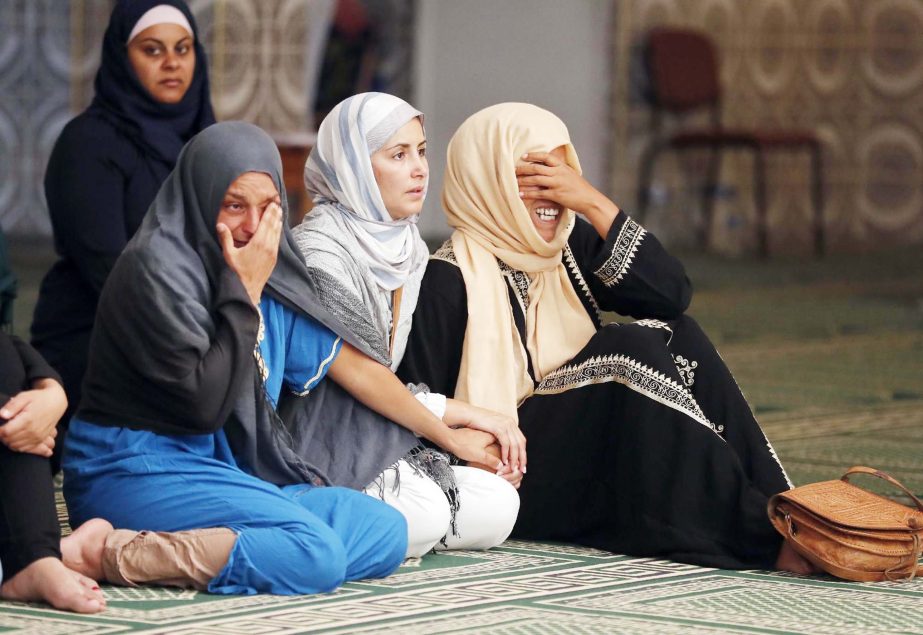
AFP , Paris :
France’s National Assembly voted in the early hours of Wednesday to extend the country’s state of emergency for six months following last week’s massacre in Nice.
The state of emergency has been in place since the Paris attacks in November, and the extension would see the emergency security measures — which give the police extra powers to carry out searches and place people under house arrest — remain in place until the end of January 2017.
It is the fourth time that parliament has proposed prolonging the state of emergency, and the move now needs to be approved by the Senate.
President Francois Hollande had last Thursday announced a plan to lift the emergency measures, but he changed tack hours later after a truck driver ploughed through a crowd leaving a July 14 fireworks display in Nice, killing 84 people in an attack later claimed by the Islamic State group.
Hollande’s Socialist government has been under heavy criticism for its response to a slew of extremist attacks.
Meanwhile, all 84 people killed in the Nice truck attack have now been formally identified, according to a top French official Wednesday, who said the death toll for the Bastille Day carnage has not increased despite several remaining in critical condition.
Prosecutor’s office spokeswoman Agnes Thibault-Lecuivre said some of the 84 French and foreign nationals who lost their lives after last Thursday’s massacre died subsequently in the hospital. Authorities have not released an official list naming the dead from the July 14 Bastille Day rampage in the southern French city.
In a speech to army reserves on Wednesday, French President Francois Hollande said 15 people wounded in the Nice attack are still in the hospital “between life and death.” He praised the French emergency and security services’ work during and after the attack in which Mohamed Lahouaiyej Bouhlel, a troubled 31-year-old Tunisian, drove a truck down a seaside boulevard full of people who had watched a fireworks show.
France’s National Assembly voted in the early hours of Wednesday to extend the country’s state of emergency for six months following last week’s massacre in Nice.
The state of emergency has been in place since the Paris attacks in November, and the extension would see the emergency security measures — which give the police extra powers to carry out searches and place people under house arrest — remain in place until the end of January 2017.
It is the fourth time that parliament has proposed prolonging the state of emergency, and the move now needs to be approved by the Senate.
President Francois Hollande had last Thursday announced a plan to lift the emergency measures, but he changed tack hours later after a truck driver ploughed through a crowd leaving a July 14 fireworks display in Nice, killing 84 people in an attack later claimed by the Islamic State group.
Hollande’s Socialist government has been under heavy criticism for its response to a slew of extremist attacks.
Meanwhile, all 84 people killed in the Nice truck attack have now been formally identified, according to a top French official Wednesday, who said the death toll for the Bastille Day carnage has not increased despite several remaining in critical condition.
Prosecutor’s office spokeswoman Agnes Thibault-Lecuivre said some of the 84 French and foreign nationals who lost their lives after last Thursday’s massacre died subsequently in the hospital. Authorities have not released an official list naming the dead from the July 14 Bastille Day rampage in the southern French city.
In a speech to army reserves on Wednesday, French President Francois Hollande said 15 people wounded in the Nice attack are still in the hospital “between life and death.” He praised the French emergency and security services’ work during and after the attack in which Mohamed Lahouaiyej Bouhlel, a troubled 31-year-old Tunisian, drove a truck down a seaside boulevard full of people who had watched a fireworks show.

